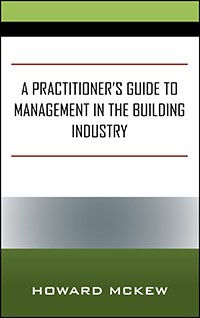On one occasion, when a client was unhappy with the design engineer’s follow up on several outstanding project tasks, the client contacted me to seek assistance since she wasn’t getting anywhere with the engineer. I asked the engineer why he was not following up on the outstanding items, and I heard a few empty excuses. Here are some common excuses and my suggestions to counter them.
• I’m really busy with my current projects.Solution: Take a time management course to learn how to manage your time and your projects.
• My boss won’t give me the added support I need to complete the work.Solution: Lack of follow-through hurts your professional reputation, as well as the company’s reputation. Figure out how you can deliver what has been promised in spite of your boss.
• The client is being “picky.” Solution: Have a face-to-face meeting with the client to resolve contractual issues. Consider compromising with the client and fulfilling as many of these tasks as possible, even if you believe they go beyond the scope of your work. Consider it business development or client maintenance and remember, it is easier to get repeat business than to go out and win new business with a new client.
• The fee is all used up.Solution: The fee has nothing to do with fulfilling your contract obligations. The client purchased specific services and you and the company you work for owe it to the client to meet your commitments. Also, take also take a course on how to be a money-making consultant.
In recent years, I’ve noticed that company upper management frequently allow these four excuses to be used, and often, management will use three out of four excuses themselves. Five years after writing my January 2007 column, I’m still hearing the same old excuses, and individuals wonder why a client didn’t select them again when a new project was awarded to the competition. Maybe someone should create a professional development training session to teach consultants how to act responsibly, because it has become too convenient for companies to allow their employees to act irresponsibly.
More importantly, and something I said to one engineer is, it doesn’t matter if the company supports your lame excuse. What matters is that this poor performance reflects on you and when you leave this company, you take with you your reputation, the good with the bad. You don’t leave the “bad” back there with the former employee. Former clients don’t forget, and quite often your former employee will use your poor performance as their excuse as to why the client’s past project had unfinished business.
Experience has proven to me what my first boss, Ed Shooshanian, said to me years ago: “You don’t have to be great to be successful in this HVAC business. You just have to be 80% good.”
After all these years, Ed’s words still ring true as I observe fair to good performance by the majority, with shades of excellence at times. For me, I have always strived to exceed the 80% and to continuously achieve “80% plus” status, but it takes a lot of persistence and discipline. The course is a journey and not a destination.
Commitment to fulfill your job description and also exceed owner expectations is a neverending challenge, but it is rewarding when you receive feedback from your clients that reinforces your quest for true client satisfaction. For that moment in time, you broke through the 80% and raised your head above the crowd.
So how does one identify both the peak performer, as well as the average performer? Well another mentor of mine (Tony Shaker) once said to me, “Remove the name and the face and ask the question, is he or she doing exactly what the job description says they should be doing?” If not, management must correct the problem. Sounds harsh, but remember, the client hired the firm and expects the firm to deliver on what it promised. If the individual can’t do the job, then it is the company’s responsibility to step in and help and, if needed, to provide a long-term course correction. Remember, clients don’t want excuses. They want results because much of their own job performance is based on the performance of the others, which includes the consultants they have hired.
Fulfilling your job description is a lifetime journey where you can raise your head above the crowd or keep yourself among the 80%. ES







